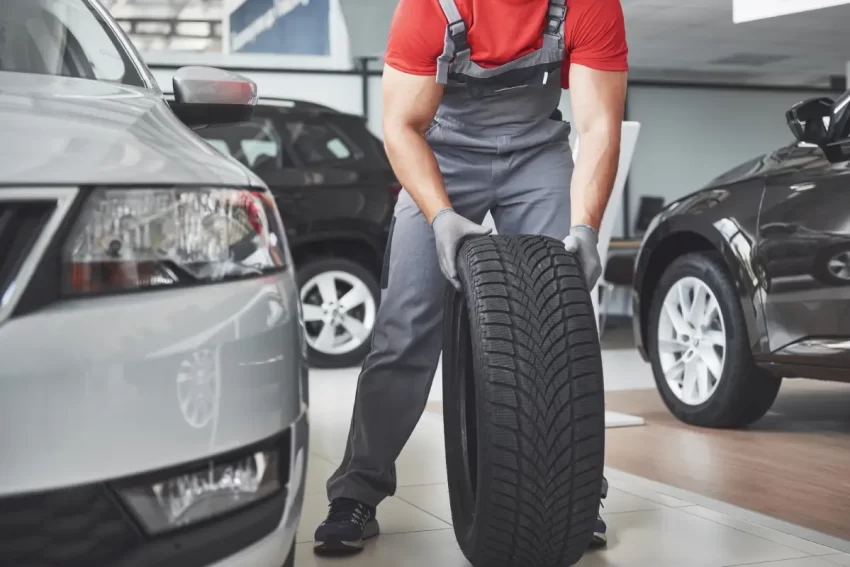The type of tires you choose significantly affects how your vehicle performs on the road. From handling and traction to ride comfort and fuel efficiency, tires directly impact your overall driving experience. Factors such as tread design, tire composition, and weather compatibility affect how your car responds to different driving conditions.
Regular tire maintenance, selecting the appropriate tire for your vehicle, and driving habits are essential for safety and performance. Whether you’re preparing for seasonal changes or simply need replacements, consulting a trusted tire shop Tinley Park can help ensure your tires are suited to your needs. Properly chosen and maintained tires improve vehicle handling and contribute to longer tire life and better fuel economy.
Understanding Tire Types
Tires are engineered with specific designs and compounds to address various environments and performance needs. Understanding these categories helps drivers match their tires to regular driving conditions for optimal performance:
- All-Season Tires: These balance longevity and year-round usability, making them a popular choice for drivers who face variable weather but don’t encounter extreme seasonal changes.
- Performance Tires: Performance tires feature specialized rubber compounds and tread designs tailored to sports cars and those looking for greater handling, cornering, and high-speed stability.
- Off-Road Tires: Built with aggressive tread and reinforced sidewalls, these tires are suited for rugged terrain and provide traction in mud, dirt, and rocks.
- Winter Tires: Essential in cold climates, winter tires maintain flexibility in low temperatures, using unique compounds and tread patterns to ensure safe travel through snow and ice.
Impact on Handling and Performance
Your choice of tires heavily affects your car’s responsiveness and safety. Sports or performance tires can dramatically boost your vehicle’s driving dynamics, improving cornering stability and braking effectiveness. Higher-performance tires can revolutionize how your car feels behind the wheel, offering sharper handling and increased safety margins, especially in demanding situations on the road.
Conversely, an improper tire choice can compromise maneuverability, lead to uneven or excessive tread wear, and reduce your vehicle’s overall safety. That’s why experts recommend consulting with a specialist before making a tire purchase, particularly for high-performance or specialty vehicles.
Fuel Efficiency and Tire Selection
Many drivers are often surprised to discover that rolling resistance—the force required to keep tires moving—significantly impacts fuel efficiency. Tires engineered with low rolling resistance reduce the energy demand on your engine, leading to improved gas mileage. For electric vehicle (EV) owners, such tires can directly affect range per charge and maintenance frequency.
Market trends indicate a growing preference for tires that provide quieter rides and extended durability. With advancements in materials and tread designs, it’s now feasible to select tires that combine lower rolling resistance with high longevity—benefiting both your wallet and the environment.
Tire Maintenance Best Practices
Routine tire care is essential to get the most out of your investment. Regular maintenance not only prolongs the life of your tires but also ensures that your car maintains peak safety and handling characteristics. Here’s what every driver should strive for:
- Monitor tire pressure at least once a month and before long trips; always follow manufacturer guidelines for the correct PSI.
- Rotate your tires every 5,000 to 7,000 miles to ensure even wear, which is especially important for front-wheel and all-wheel drive vehicles.
- Check tread depth frequently and replace tires when they reach the end of their safe lifespan—bald or unevenly worn tires can be hazardous, particularly in wet or icy conditions.
Emerging Tire Technologies
The tire industry is experiencing rapid advancements driven by demand for smarter, safer vehicles. Innovations such as smart tires equipped with embedded sensors are becoming increasingly mainstream. These sensors continuously track data like pressure, temperature, and tread depth, and they can alert drivers to potential issues before they become serious safety concerns.
As noted by CNN Business, smart tire technology is poised to make driving safer and more efficient by delivering real-time information straight to your dashboard or smartphone.
In addition to sensor integration, manufacturers are developing eco-friendly compounds and recyclable tires that reduce environmental impact without sacrificing performance—helping drivers make more responsible, informed tire choices.
Choosing the Right Tires for Your Needs
Every driver’s situation is unique. The “right” tire blend depends on your climate, the roads you most frequently travel, your vehicle’s needs, and your performance expectations. Relying on the expertise of professionals, like those at a trusted tire shop in your area, can help ensure you’re making the best investment for your vehicle’s safety and efficiency.
With a deeper understanding of tire options, technologies, and maintenance practices, you’ll be better equipped to make choices that improve your driving experience, boost road safety, and maximize vehicle efficiency for miles ahead.

